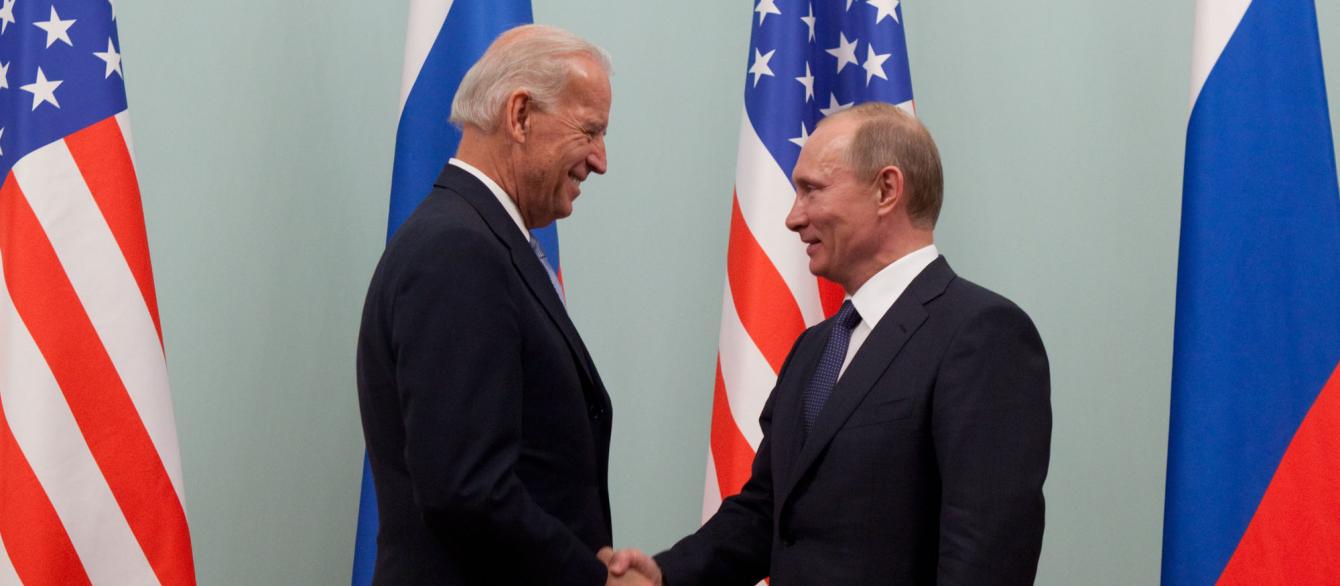When relations between parties hit an impasse, maintaining dialogue can seem pointless. But great negotiators must recognize this is never the case: maintaining and growing channels of communication, even in periods of gridlocked talks, is an essential catalyst for trust-building that can reveal hidden points of agreement and generate breakthroughs.
Superficially, relations between the United States and Russia could hardly reach a lower point—short of direct military confrontation. In Ukraine, Russia and NATO are actively showing their determination to push back against encroachment by the other side. In the realm of cyberwarfare, little has improved since Russia’s interference in the 2016 election triggered the imposition of a hefty US sanctions regime—and America has regularly faced significant security breaches emanating from Russian territory. Meanwhile, despite extending the New START Treaty, Putin and Biden have made little progress in addressing new and emerging threats in weapons development. On first look, there appears to be little opportunity—from the negotiator’s lens—to build a better relationship between the two powers.
Yet beneath this admittedly icy surface lie complex and discreet efforts by both administrations to lead a careful rapprochement. The chasm between the two countries on major geopolitical issues is undoubtedly large. However, recent shifts in the United States’ approach to Russia have revealed small ways the superpowers could work together to rebuild a base of trust that is an essential precursor to any major bilateral agreements.
Since June, the administrations have collaborated to organize three visits to Russia by senior American officials, as well as multiple meetings on neutral soil, such as Finland. Direct dialogues have opened about topics ranging from cyber-security to arms control. According to Russian international security experts and officials, Biden’s pragmatic approach to Putin appears to be paying off. Increased engagement, they claim, gives Russia the respect it deserves as a major geopolitical player. Biden has also been prepared to make concessions to keep talks in motion. For instance, the administration agreed to approve a visa for a top Russian diplomat in exchange for the removal of State Department official Victoria Nuland from Russia’s travel blacklist.
Though the specifics of recent discussions are under wraps, there is growing hope among diplomats that the countries are acknowledging and building on their alignment in key areas. These include resuscitating the Iran Deal, as well as maintaining strategic stability in the face of emerging technologies such as hypersonic weapons and anti-ballistic missiles. Moreover, by placing an emphasis on opening honest channels of communication, the Biden administration hopes to head off the possibility of being blind-sided by Russian actions that could derail the United States’ domestic and international priorities. One positive signal came from Putin himself, who—when asked about America’s marred withdrawal from Afghanistan—firmly stated that the United States had made the right choice, explaining that “time will pass and everything will fall into place […] The [United States’] attractiveness doesn’t depend on this, but on its economic and military might.”
Of course, the international community has yet to see whether talk turns into action. But renewed dialogue at least offers the possibility of breakthrough change. Great negotiators see beyond single iterations of the discussions at hand, knowing that in international relationships, negotiations are inherently a reiterative game in which trust-building has major payoffs in the long term. By engaging consistently, rather than stonewalling each other, the geopolitical rivals are reducing the risks engendered by uncertainty, and laying the groundwork for (albeit slow) progress in addressing their shared concerns.
New avenues for dialogue, amidst bitter tensions between parties, may be just small steps; but taken in the right direction, consistently and over time, they may yield surprising diplomatic victories. As a skilled negotiator, you must look for and create channels for dialogue—even in the face of impasse.






